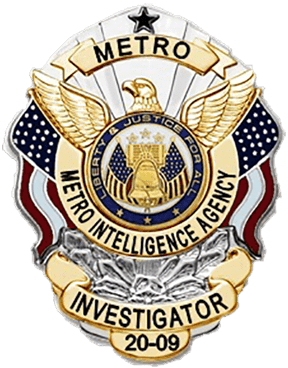Interviews and Statement Analysis
Re-interviewing is essential in any private investigation, especially where an individual is at risk of losing a lot and experiencing a major life change. Interviewing several weeks or months after an incident is very beneficial. We are dedicated to assisting the public in making educated decisions through legally accepted and preferred techniques. Our Private Investigators believe in treating everyone with the highest level or respect while encouraging truthfulness and not enabling deceptive behavior / statements to continue.
Interviews are conducted in a non-confrontational method that is structured around a general conversational approach. Interviews are conducted by a Certified Forensic Interviewer (CFI) and recognized by the Center for Interviewer Standards and Assessment. This technique is used by State, Federal and worldwide Intelligence Agencies Interviewer recognizes deception in physiological responses such as pupil dilation, pore size, skin flush, muscle tone changes, breathing, etc. manifested in linguistic responses. To the trained, the physiological and linguistic responses become outwardly recognizable in totally different places: one in bodily responses other than in language.–
Areas of interviews:
Incident Specific Interviews – are conducted with individuals suspected of committing a crime or having knowledge of a crime, in an effort to obtain an admission of guilt.
General Interviews – are conducted with victims, witnesses and suspects to answer the investigative questions about the incident(s) and gather evidence.
Pre-Employment Interviews – are conducted with applicants to verify the information on their application and review issues that relate to their honesty with former employers Consulting Services – utilize skilled loss prevention specialists to review a company’s operations. The focus is to reduce shrinkage or the possibility of shrinkage by instituting adequate management controls. The final report is a blueprint to reduce losses within the organization
Linguistic Statement Analysis Technique (LSAT)
LSAT revolves around learning “what questions should I ask”. This is very useful tool to implement prior to interviewing and trial /testimony preparation. This identifies significant hidden information the author did not realize they were providing in their written story. This is done by identifying the part of the brain used when writing a statement or portion of thereof (the memory = truthful or the creative= altered, misrepresented, and deceptive) Allows us to know EXACTLY where the deception lies and allows us to focus on this area of the statement.
This prevents a “fishing expedition” or “hit-and-miss” interviewing, thus saving time and money! This is done with an average of 92% accuracy where a polygraph is only about 85%. This is also admissible in court where polygraphs are generally not..

